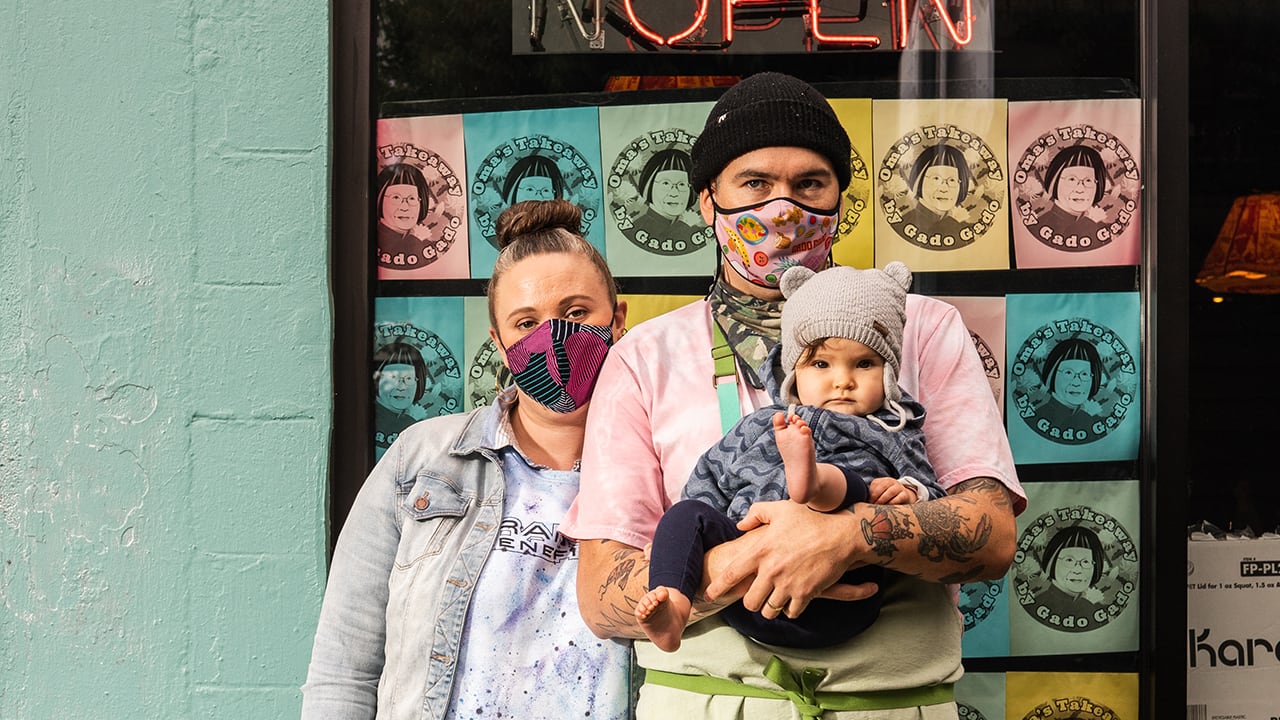A grand tree will still stand in Pioneer Courthouse Square this winter, but the landscape around it is unrecognizably grim.
High-rise office buildings are deserted while their normal inhabitants work remotely. Theaters are locked tight, their marquees blank. Even the hundreds of bulbs that illuminate the underside of the Schnitz's awning have all been unscrewed—as if to say downtown's glimmer is gone.
And what's most conspicuously missing: restaurants.
Downtown isn't filled with animated patrons enjoying post-shift drinks or preshow dinners. Instead: blocks of windows with drawn curtains or covered in butcher paper.
In one month—from March to April—the state's leisure and hospitality industry lost 30 years' worth of economic growth, according to a report by ECONorthwest. Some 55,000 jobs were shed this spring. Only 20,000 of those positions have been restored since the lockdown ended, says the Oregon Restaurant & Lodging Association.
Every type of Portland business has been hammered by COVID-19, of course. In September, the Portland Business Alliance hand-counted the number of shuttered storefronts downtown. It found 170 businesses closed—and 20 of them don't plan to reopen.
But restaurants and bars—our communal spaces where it's not safe to gather—have been hit especially hard.
And that was before the governor ordered everyone to bring their meals home in boxes once again. On Nov. 13, Gov. Kate Brown ordered a four-week "freeze" in Multnomah County—including a ban on indoor and outdoor dining at restaurants and bars.
It's fitting that the governor's announcement fell on Friday the 13th. For Portland's restaurateurs, it felt like a horror-movie sequel.
They'd been here before: in March, when a COVID-19 shutdown sent all their customers home. Except this time, spring and summer, with warm temperatures and sun-soaked patios, have been edited out of the picture. Lockdown Part 2 is set in a long, dark winter with soaring numbers of COVID-19 cases spliced in.
"We've already heard from members if there was going to be another shutdown," says Greg Astley, ORLA's director of government affairs, "even a short one like what's been announced, they would either permanently close their doors—or close their doors until next spring or summer, when hopefully we have a vaccine."
Astley says at least 50 Portland-area bars and restaurants have told him they will call it quits because of the freeze. That adds to the statewide toll of 1,000 establishments that had done the same through September, the last time ORLA received updated figures.
A survey the Independent Restaurant Alliance of Oregon shared in a letter from the group to Gov. Brown indicated that "the loss of indoor dining results in a revenue loss on average of 81.75%."
The new symbol of Portland's restaurant scene is an empty shed—something improvised to keep a business alive, only to see that backup plan crushed, too.
"These structures were almost like the symbol of us solving winter. Like, we've figured it out," says Sara Szymanski, co-owner of Threshold Brewing in Montavilla. She and her husband, Jarek, spent 40 hours and $3,000 building a picnic-table shelter outside their taproom. "And to have it be negated just as the weather is starting to get bad, that was like we're back at square one."
The weeks leading up to Christmas are normally some of the industry's busiest, and while no one expected to be hosting banquets or company parties in 2020, plenty of owners were ready to bundle up and serve patrons in fortified tents and sheds through Dec. 25.
But if you run a restaurant in Multnomah County, the earliest you'll have a shot at in-person service is Dec. 17. That's three of the four prime holiday weeks erased—in a best-case scenario.
Vitaly Paley had 90 reservations on the books for Thanksgiving at his eponymous bistro Paley's Place. "Usually, Thanksgiving has been the biggest day of the year for us, and we've been counting on it to kind of stay that way, even through COVID," says Paley.
Now he's hoping to persuade at least some of those who planned to eat there to take their holiday meal from his kitchen to theirs rather than cancel completely. "I assume some will and some won't," he says. "There's a difference between people wanting to be in the restaurant atmosphere, enjoying the company of other people, and being home alone eating food that they've got to reheat themselves."
That's what's left: takeout. Every restaurant that survives will do so by serving dishes out a window.
As we conducted a survey of what remains of a once-formidable restaurant scene, we found glimmers of hope. This industry is made up of people who are incredibly innovative and remarkably resilient. They will fight to survive.
In the following pages, you'll meet some of them. We spoke to David Machado, who owned five food and drink establishments and lost them all, but still has ideas for how Portland can move forward. We heard from the husband-and-wife team behind popular Indonesian restaurant Gado Gado who launched a new brick-and-mortar takeout joint during the lockdown. And we found a brewery that actually found a way to expand its operations during a global health crisis—because it turns out in circumstances like these, people want a lot of canned beer.
These are all snapshots taken in the days and weeks leading up to the governor's most recent round of restrictions. With any luck, they will provide some much-needed inspiration as we hunker down again.
Portland's Restaurants Were Hanging on by a Thread. What Will They Do in a Holiday Freeze?
